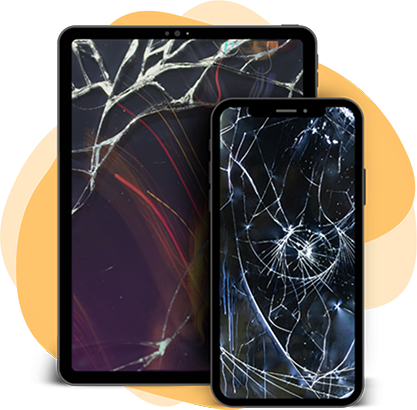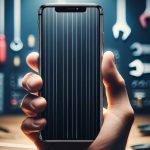No products in the cart.
How Sunshine Coast's Humidity Affects Your Smartphone and What You Can Do About It
Imagine you’re walking along the beautiful beaches of the Sunshine Coast, capturing memories on your smartphone, when suddenly, it begins to malfunction. The culprit? The region’s notorious humidity. As a tech enthusiast striving for mastery, you understand that such environmental conditions can wreak havoc on electronic devices. High humidity can lead to condensation inside your phone, potentially damaging internal components and diminishing performance. To safeguard your device, you’ll need to implement protective measures against moisture infiltration. This entails being vigilant about the environments in which you use your phone and investing in preventative accessories. Recognizing signs of humidity damage early can also be crucial—glitchy screens or unresponsive buttons are red flags. Equip yourself with strategies to combat the damp air and you’ll ensure your smartphone remains as resilient as your passion for technology.
How Does High Humidity Impact Smartphones
You may not realize it, but high humidity can severely impact your smartphone’s performance. In such conditions, moisture can accumulate in your device, potentially damaging internal components and leading to overheating. Let’s explore how your smartphone’s ports are at risk and what this means for different brands and models.
The Relationship Between Humidity and Smartphone Performance
Your smartphone’s performance can significantly decline in high humidity conditions, as moisture in the air may lead to corrosion and short-circuiting of internal components. Humidity and temperature fluctuations impact smartphones by accelerating wear and altering ambient temperature thresholds crucial for optimal functioning. Mastering this environment necessitates a dehumidifier to stabilize air quality and safeguard your device against the detrimental effects of excessive airborne moisture.

What Happens to Smartphones in High Humidity Conditions
When smartphones are exposed to the Sunshine Coast’s high humidity, internal components may suffer from condensation, risking irreversible damage and compromised functionality. Humidity levels above the norm can cause moisture build-up; when it condenses, it affects the hygroscopic parts inside your device, leading to potential short circuits.
| Impact | Consequence |
|---|---|
| Moisture Build-Up | Short Circuits, Corrosion |
| Condensation | Damage to Internal Components |
| Hygroscopic Damage | Degraded Performance, System Failures |
| High Humidity | Accelerated Wear and Tear, Malfunctions |
Effects of High Humidity on Different Smartphone Brands
Different smartphone brands’ susceptibility to the Sunshine Coast’s high humidity can significantly affect your device’s longevity and reliability.
- High humidity conditions may cause certain devices to absorb moisture, compromising functionality.
- Moisture level fluctuations can lead to condensation on internal components of your device.
- Prolonged exposure risks corrosion, impacting electronic circuitry.
- Some brands implement better seals and coatings to mitigate moisture ingress.
How Does High Humidity Affect Smartphone Ports
Frequently, high humidity will infiltrate your smartphone’s ports, potentially causing short circuits and corrosion that disrupt normal functionality. When the air’s dew point is high, moisture inside the connectors becomes a critical issue.
| Impact on Ports | Consequence |
|---|---|
| Short Circuits | Device Failures |
| Corrosion | Signal Degradation |
| Connector Damage | Impaired Charging |
| Moisture Buildup | Audio Issues |
| Prevent Moisture | Prolonged Lifespan |
To mitigate these risks, use preventative measures to shield your device from excessive humidity.
What Are the Risks of Smartphones Overheating in High Humidity
You’ll also face the risk of your smartphone overheating if Sunshine Coast’s high humidity pairs with elevated temperatures, a combination that can significantly degrade your device’s performance.
- Thermal Stress: High temperatures exacerbate internal heat generation.
- Condensation: Moisture from the air may condense inside, risking water damage.
- Battery Drain: Accelerated battery depletion due to temperature and humidity stress.
- Component Failure: Prolonged exposure can lead to the malfunction of sensitive electronic devices.

Don't Let A Broken Phone Hold You Back
Look no further! Our comprehensive price list covers all major brands and models, ensuring that you can easily find the repair cost for your specific phone. Pleas check our price list for details
How to Protect Your Smartphone from High Humidity
You’re aware of the risks high humidity poses to your smartphone; now it’s crucial to focus on prevention. You can employ dehumidifiers to maintain a low-humidity environment for your device or use silica gel packets to absorb excess moisture that may sneak into your phone case. Additionally, adjusting your smartphone settings and adopting best practices for insulation can further shield your device from the detrimental effects of high humidity.
Using Dehumidifiers to Reduce Humidity around Smartphones
While you may not be able to control the weather on the Sunshine Coast, using a dehumidifier can effectively reduce the humidity levels around your smartphone.
- Implement dehumidification to maintain optimal ambient conditions.
- Utilize silica gel packets to actively remove moisture.
- Monitor high-humidity alerts to protect devices proactively.
- Regularly check the dehumidifier’s efficiency for consistent performance.

Benefits of Using Silica Gel to Absorb Moisture in Smartphone Cases
Incorporating silica gel into your smartphone case is a simple yet effective measure to combat the high humidity levels often experienced on the Sunshine Coast. As a desiccant, silica gel proficiently absorbs ambient moisture, safeguarding your device within smartphone cases. Its use mitigates potential moisture-related damage, ensuring your smartphone’s longevity and optimal functionality in humid environments. Always opt for silica gel solutions designed for electronic devices.
Ways to Avoid Condensation Changes in Smartphone Settings
Adjusting your smartphone’s settings can significantly reduce the risk of condensation damage amidst Sunshine Coast’s high humidity levels.
- Decrease Brightness: Lowers heat generation, mitigating temperature changes that attract water vapor.
- Disable Unnecessary Apps: Minimizes internal heat, preventing condensation.
- Use Power Saving Mode: Controls device temperature, reducing humidity impact.
- Insulate Your Device: Keep it in a protective case to shield against rapid temperature shifts.
Best Practices for Keeping Smartphones Dry in High Humidity
Moving on from settings adjustments, let’s dive into the practical steps you can take to keep your smartphone dry amid the Sunshine Coast’s sticky climate.
| Strategy | Benefit | How it Works |
|---|---|---|
| Use Air Conditioning | Lowers RH; reduces heat build-up | Air conditioning systems moderate RH |
| Silica Gel Packets | Absorbs moisture | Prevents build-up within phone cases |
| Regular Airflow | Evaporates accumulated moisture | Encourages heat and humidity dispersal |
| Waterproof Cases | Shields from external humidity | Barriers against direct moisture |
| Avoid Hotspots | Minimizes heat exposure | Prevents excessive heat and humidity |
How to Insulate Smartphones from High Humidity Environments
You’ll need to choose protective measures that effectively insulate your smartphone from the pervasive humidity of the Sunshine Coast.
- Utilize airtight, waterproof cases that do not allow water droplets to penetrate.
- Apply anti-moisture packets within protective cases to absorb ambient humidity.
- Regularly utilize aircon environments to mitigate moisture exposure.
- Avoid direct exposure to rainfall which may affect device integrity.

Revive Your Device With Phone Expert
Our skilled technicians specialize in fixing cracked screens, battery replacements, software issues, and more. With a focus on quality and customer satisfaction, we provide fast and reliable repairs to get your phone up and running again.
What are the Telltale Signs of Humidity Damage in Smartphones
You’ll need to recognize the symptoms of humidity damage in your smartphone to address issues swiftly. Look for malfunctions like a flickering screen, unresponsive touch inputs, or corrosion on the charging ports, which all suggest moisture intrusion. Understanding the interplay between high temperatures and humidity is crucial, as they can accelerate internal component degradation, demanding regular maintenance for optimal performance.
How to Identify Water Damage in Smartphones Caused by High Humidity
Smartphone users on the Sunshine Coast should watch for unresponsive touchscreens and muffled audio, which are common indicators of humidity-induced water damage.
- Discoloration: Check for unusual spots or streaks under the screen.
- Mildew Presence: Sniff for a musty odor emanating from the device’s cavities.
- Liquid Form: Look for condensation or fogging inside camera lenses.
- Alert Notifications: Pay attention to moisture detection alerts from your smartphone.
What Role Do High Temperatures Play in Affecting Smartphones in Humid Conditions
While you’re keeping an eye out for water damage indicators, bear in mind that high temperatures can exacerbate the effects of humidity on your smartphone, potentially leading to overheating and battery degradation.
| Impact | Symptoms | Prevention |
|---|---|---|
| Overheating | Device too hot to touch | Avoid prolonged exposure to sunlight |
| Battery life reduction | Faster battery drain | Regulate charging habits |
| Optimal performance loss | Slow response, crashes, glitches | Maintain specific temperature range |
| External temperature | Device feels warm externally | Use protective cases |
| Heat-related malfunctions | System warnings, forced shutdowns | Monitor usage during peak heat |
Why One of the Best Ways to Protect Smartphones in High Humidity is Regular Maintenance
Although you may not always see the signs, regular maintenance is key to protecting your smartphone against the stealthy creep of humidity damage. Understand your device’s susceptibility and preemptively shield it from the effects of high humidity, especially in regions prone to natural disasters.
- Glitchy touchscreen responses
- Fog under the camera lens
- Unexplained battery drain
- Corrosion around charging ports and headphone jacks
How High Humidity May Affect the Internal Components of Smartphones
Every component inside your phone is susceptible to the disruptive effects of high humidity, which can manifest in several worrisome signs.
| Sign | Indication |
|---|---|
| Condensation | Moisture under screen |
| Corrosion | Discoloration on ports |
| Malfunction | Unresponsive buttons |
| Glitching | Erratic screen behavior |
| Shutdown | Sudden power loss |
High humidity may affect the internal components, with phones and tablets likely to be exposed to levels beyond international standards, risking even water damage.
Testing Smartphones to Determine the Impact of Humidity on Performance
To accurately assess the impact of humidity on your smartphone, you’ll need to recognize the five key signs of moisture damage:
- Unresponsive or erratic touch screen performance
- Fogging under the camera lens
- Glitchy behavior during or after exposure to high humidity environments
- Corrosion visible through ports or seams
These symptoms can compromise your Samsung Galaxy’s performance, particularly during heat waves when air quality exacerbates humidity levels.

Book Online &
Save $10 on Your Mobile Phone Repair
By booking online, you get an exclusive $10 discount on your repair cost. Don’t miss out on this special offer!
How to Manage Humidity Around Your Smartphone
You’ll need to consider the ambient temperature around your smartphone, as it directly influences humidity levels. Employing air conditioning can help you regulate the surrounding air’s moisture content, safeguarding your device. Additionally, incorporating hygroscopic materials or desiccants into your smartphone’s environment can effectively absorb excess humidity.
Understanding the Impact of Ambient Temperature on Humidity Levels
Commonly, the ambient temperature on the Sunshine Coast directly influences the humidity levels that can impact the performance and longevity of your smartphone.
- Solar Radiation: Intense sunlight increases ambient temperature, elevating humidity levels.
- Temperatures Can Cause: Fluctuation in device operation efficiency.
- Wind Speed: Affects moisture evaporation, thereby altering humidity.
- Ambient Temperature: Contributes to the condensation risk within your device’s components.
Using Air Conditioning Systems to Regulate Humidity around Smartphones
Air conditioning systems can be your smartphone’s ally against the sticky humidity of the Sunshine Coast, maintaining a drier environment to keep your device functioning optimally. These systems regulate indoor humidity by removing excess moisture from the air, which can otherwise seep into your smartphone’s components. Consistent use of air conditioning can preserve your device’s longevity in humid climates.
The Role of Hygroscopic Materials and Desiccants in Absorbing Moisture from the Air
To protect your smartphone from moisture on the Sunshine Coast, consider using hygroscopic materials and desiccants, which effectively absorb dampness from the air.
- Silica gel packets: renowned for absorbing moisture and help remove excess humidity
- Calcium chloride: a potent desiccant frequently used in commercial applications
- Zeolites: microporous hygroscopic materials with high affinity for water molecules
- Activated alumina: efficiently removes water vapor without posing an obstruction to airflow
How Smartphones Can be Affected by Sudden Temperature Changes in Humid Environments
Your smartphone’s performance can be seriously compromised by the condensation that results from sudden temperature changes, a frequent occurrence in Sunshine Coast’s humid climate.
| Factor | Impact on Smartphone | Management Tip |
|---|---|---|
| Humidity | Accelerates wear and tear | Use silica gel packs |
| Sudden Temp Changes | Causes condensation buildup | Avoid rapid transitions |
| Humid Environments | Triggers electronic failure | Maintain stable temps |
Mitigate risks by monitoring local weather and storing devices in controlled settings.
Protecting Smartphones During Natural Disasters with High Humidity Conditions
Ensure your smartphone remains functional during natural disasters by proactively managing the high humidity levels typical of such events.
- Use airtight, waterproof cases to shield from moisture
- Silica gel packets: Include them in your case to absorb excess humidity
- Regularly check weather-sealing if your smartphone claims water resistance
- Avoid exposing your smartphone to rapid temperature changes that can cause condensation






